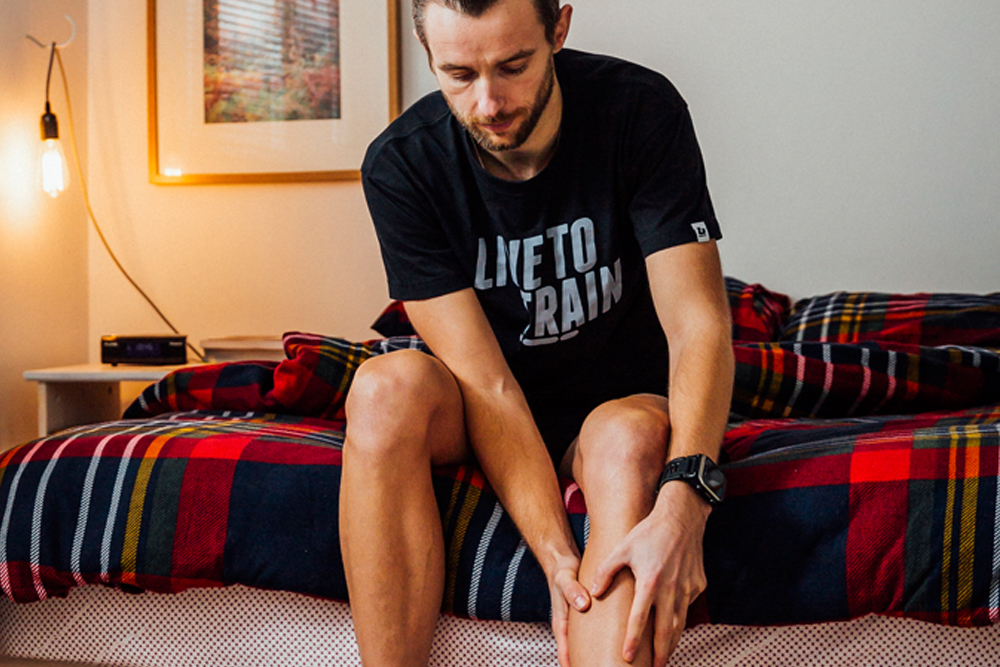How to deal with inflammation
Inflammation is not your enemy — it is a crucial element in recovery says Vicky Ware

It’s tempting to think of inflammation as an adversary, since it causes soreness and unwanted symptoms, but it’s actually an important part of the healing process.
Tissue becomes inflamed to recover from damage caused by grazes, injuries, muscle damage and even infection.
Although taking anti-inflammatory supplements and having ice baths reduces inflammation, doing so may impair the process that turns sore legs into stronger, faster legs.
>>> Can delayed onset muscle soreness be avoided?
Mild, localised inflammation typically presents after a weights or sprint session;
full body inflammation occurs when you’re suffering from an infection such as the flu.
Inflammation can cause problems when it goes out of control. This can happen for many different reasons; a common cause among cyclists is insufficient recovery.
Get The Leadout Newsletter
The latest race content, interviews, features, reviews and expert buying guides, direct to your inbox!
The amount of training your body can handle depends on how effectively you recover.
>>> Which is best – cycling or running?
Failing to sleep or eat enough, or eating a diet deficient in micronutrients or calories, reduces your training capacity.
Unless you address these issues, the immune system may fall out of kilter.
Maximise your post ride recovery window
Inflammation: The essentials
- Controlling inflammation requires a balance between training and recovery
- Diet is crucial to controlling inflammation
- Stress is inflammation-promoting
- Anti-inflammatory supplements may inhibit recovery
- Chronic inflammation leads to injuries
Chronic inflammation can present as an increased sensitivity to allergens such as pollen or insect bites, difficulty recovering from your usual training, as well as anxiety, irritability and depression.
Diet is fundamental to promoting a well-balanced inflammatory response.
>>> Winter’s here: Flu fighting foods
A diet high in sugar is inflammatory, while a diet high in nutrient-dense foods such as nuts, oily fish, fruits and vegetables is anti-inflammatory, as these foods provide the body with the building blocks it needs to promote a well-balanced response, facilitating swift, full recovery and adaptation to exercise loads.
As a cyclist, you exercise far more than the average person, which should be an advantage when it comes to inflammation.
>>> What not to eat before you sleep (video)
The key is ensuring a healthy balance between the amount of training you do, the other stressors in your life, and your recovery.
Get this balance right and you will prevent acute inflammation while eliminating the need for anti-inflammatory supplements.
How to approach your winter training
Inflammation: Key points
Do replace some grains, red meat and eggs in your diet with nuts. Research shows this significantly reduces a key marker of inflammation in the body called C-reactive protein. Replacing a sugary snack will have the same effect
Do eat a nutritious diet and get enough sleep to help your body combat exposure to toxins in polluted air. You can be exposed to these driving or cycling through heavy traffic or even sitting on the tube
Do take a vitamin D supplement during autumn and winter months. Winter sun is too weak to allow skin production of this vital anti-inflammatory nutrient, which
is also essential for muscle and bone health
Do follow a sustainable training plan. Doing too much too soon promotes inflammation and may lead to injury. Consistency is the key to meeting long-term fitness goals
Do eat whole foods, which give the body the inflammation-fighting tools it needs without having a negative effect on the inflammatory response, which could inhibit adaptation to exercise
>>> Embarrassing cycling problems, and how to prevent them
Don’t take anti-inflammatory supplements or drugs unless you have a specific medical need for them. Taking them unnecessarily can actually inhibit your body’s ability to recover from training
Don’t eat foods that induce an allergic reaction, as they can cause inflammation in the gut, potentially leading to more serious problems
Don’t skimp on oily fish intake. Essential fatty acids are key building blocks of a healthy immune system, allowing your body to recover from exercise without excessive inflammation. Omega-3 fats have also been shown to aid muscle building

Thank you for reading 20 articles this month* Join now for unlimited access
Enjoy your first month for just £1 / $1 / €1
*Read 5 free articles per month without a subscription

Join now for unlimited access
Try first month for just £1 / $1 / €1
Jack Elton-Walters hails from the Isle of Wight, and would be quick to tell anyone that it's his favourite place to ride. He has covered a varied range of topics for Cycling Weekly, producing articles focusing on tech, professional racing and cycling culture. He moved on to work for Cyclist Magazine in 2017 where he stayed for four years until going freelance. He now returns to Cycling Weekly from time-to-time to cover racing, review cycling gear and write longer features for print and online.
-
 'It took everything' - Puck Pieterse outclimbs Demi Vollering to win La Flèche Wallonne
'It took everything' - Puck Pieterse outclimbs Demi Vollering to win La Flèche WallonneDutch 22-year-old shows Classics pedigree with first one-day victory
By Tom Davidson
-
 Tadej Pogačar flies to dominant victory at La Flèche Wallonne
Tadej Pogačar flies to dominant victory at La Flèche WallonneSlovenian takes second win at Belgian classic ahead of Kévin Vauquelin and Tom Pidcock
By Tom Thewlis